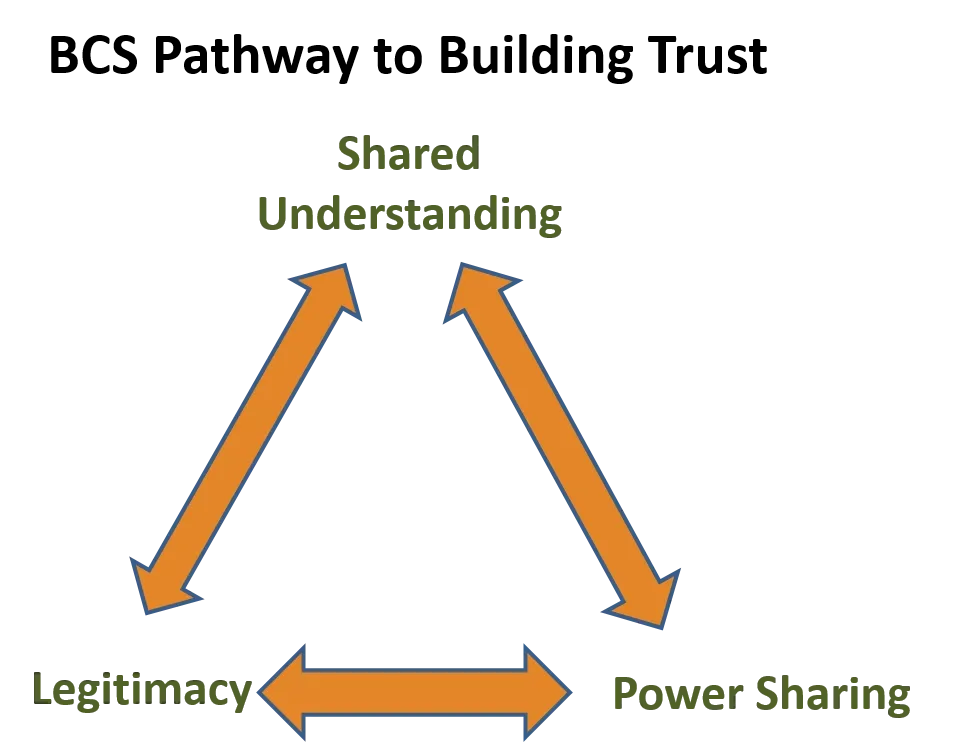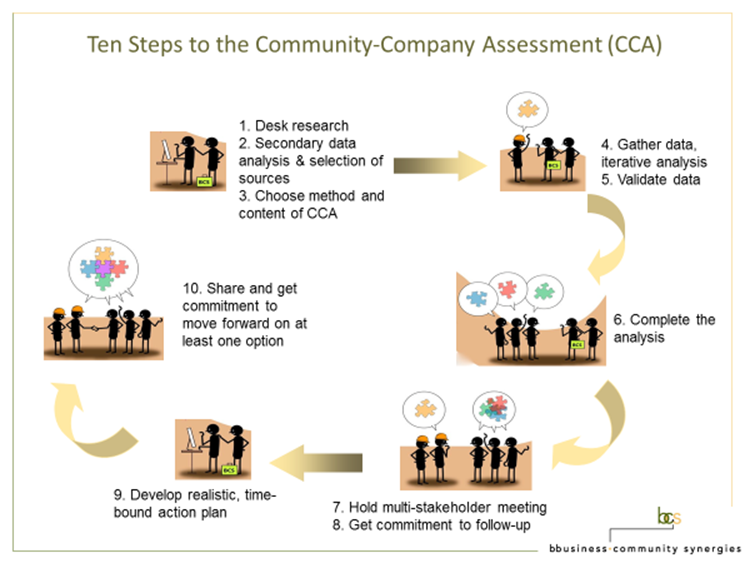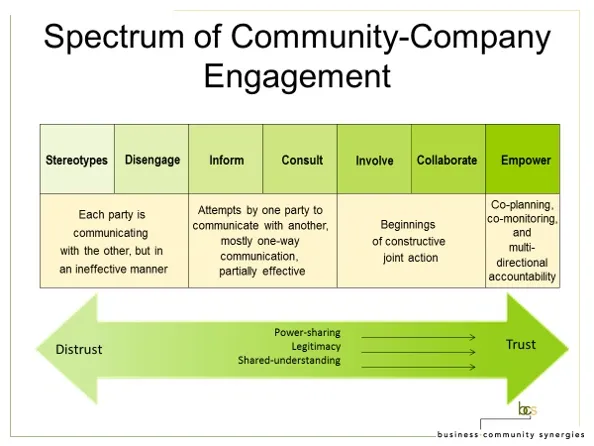
The BCS conceptual framework is centered on trust-building, achieved in practice through engagement in the Community-Company Assessment (CCA) process and monitored using the Spectrum of Engagement.
BCS is unique in focusing on trust as the fulcrum of sustainable, mutually-beneficial relationships between communities and companies where they live and work. By making trust-building the basis for engagement, BCS draws on the CCA to create or strengthen the conditions under which mutually-beneficial relationships can be developed and sustained.
A foundation of trust between a company and a community increases the likelihood that negotiations will be informed, responsive, transparent, and lead to a social license to operate. In an emergency, trustful relationships enable opportunities for peaceful resolution.
Building trust is an evolving process of communication and action. The pathway to building trust begins with shared understanding, hearing the other party’s perspective. The next step is for the parties to accept the legitimacy and value of other perspectives, despite potential disagreement. The third and final step, shared understanding, is achieved through joint action with shared responsibility and accountability.
The Community-Company Assessment

Priorities
The CCA supplements typical assessment processes with inductive data gathering. This ensures that community and company priorities are determined by the two parties and not by the consultant.
Qualitative Data Analysis
A special capacity of BCS teams is the systematic collection, organization and analysis of large amounts of qualitative data gathered through the inductive interview process. Team members are typically also familiar with standard quantitative techniques.
Facilitation
Regardless of their technical areas of expertise, every BCS team member has facilitation skills. These enable listening and creating environments where individuals and groups may express their points of view without fear or retribution.
Data Validation
For every assessment or study, for any data gathering (qualitative or quantitative), BCS facilitates a series of public meetings to feed back the summary of our findings to the people who provided the data. We ask them if the data look right and seek their interpretation before leaving the field.
Rapid Assessment Techniques
BCS also uses a variety of rapid assessment techniques drawn from the traditions of participatory development.
Action-oriented
The CCA process concludes with formal, mutually agreed actions and accountabilities. These are monitored through activity-specific reviews as well as the more strategic level of trust-building through the Spectrum of Engagement.
Monitoring Relationships

The Spectrum of Engagement
The Spectrum of Community-Company Engagement is the framework for goal setting and monitoring progress toward building trustful and mutually beneficial relationships. Communities and companies use the Spectrum to track changing perceptions of their relationship.
